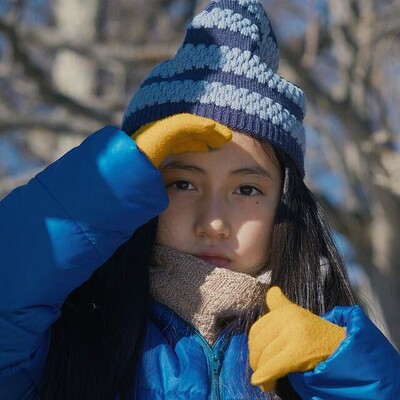
A event held at The Cube on Wednesday 15th May. The event starts at 20:00.
Dir: Ryusuke Hamaguchi, Japan, 2023, Japanese with English subtitles, 106 min. Cert: 12A
Wed 15 May // 20:00
Tickets: £5 (full) www.cubecinema.com
In his follow up to the domestic epics Happy Hour and Asako I & II, and the globally acclaimed tour-de-force Drive My Car, Japanese auteur Ryusuke Hamaguchi turns to what is at first sight is a smaller canvas: the struggle of a tiny rural community to protect itself from environmental degradation. But Evil Does Not Exist slowly reveals itself to be playing a bigger (and stranger) game, one that builds to a shocking, discordant climax that has divided audiences and demands discussion.
Along the way, Hamaguchi again proves himself to be a master of folding the profound into the everyday - with not one but two riveting depictions of log-chopping (trust us) and a Wisemanesque community meeting that’s amongst the most gripping scenes in any film this year (really, trust us).
In the rural alpine hamlet of Mizubiki, not far from Tokyo, Takumi and his daughter, Hana, lead a modest life gathering water, wood, and wild wasabi for the local udon restaurant. Increasingly, the townsfolk become aware of a talent agency's plan to build an opulent glamping site nearby, offering city residents a comfortable "escape" to the snowy wilderness. When two company representatives arrive and ask for local guidance, Takumi becomes conflicted in his involvement, as it becomes clear that the project will have a pernicious impact on the community.
“The love for Hamaguchi Ryusuke’s Drive My Car, which won an Academy Award for Best International Feature in 2022, can feel like a dream. Needless to say, Hamaguchi’s refraction of Chekhov endures, but fans could still fret over just how the director could manage a comparable follow-up. The beguiling Evil Does Not Exist, with its story of a community’s defiance of an intrusive land development, puts fears to rest and reconfirms Hamaguchi’s talents as one of today’s greatest dramaturges.” - Nicolas Rapold, Sight and Sound
“Cryptic and confounding, it will not leave your head.” - Danny Leigh, Financial Times
“I have watched “Evil Does Not Exist” twice, and each time the stealthy power of Hamaguchi’s filmmaking has startled me anew. Some of my reaction has to do with how he uses fragments from everyday life to build a world that is so intimate and recognizable — filled with faces, homes and lives as familiar as your own — that the movie’s artistry almost comes as a shock. The dreamworld of movies often feels at a profound remove from ordinary life, distance that brings its own obvious pleasures. It’s far rarer when a movie, as this one does, speaks to everyday life and to the beauty of a world that we neglect even in the face of its calamitous loss.” - Manohla Dargis, The New York Times
Entry requirements: 14+, any under 18s accompanied by 21+ adult 1:1 ratio
Wed 15 May // 20:00
Tickets: £5 (full) www.cubecinema.com
In his follow up to the domestic epics Happy Hour and Asako I & II, and the globally acclaimed tour-de-force Drive My Car, Japanese auteur Ryusuke Hamaguchi turns to what is at first sight is a smaller canvas: the struggle of a tiny rural community to protect itself from environmental degradation. But Evil Does Not Exist slowly reveals itself to be playing a bigger (and stranger) game, one that builds to a shocking, discordant climax that has divided audiences and demands discussion.
Along the way, Hamaguchi again proves himself to be a master of folding the profound into the everyday - with not one but two riveting depictions of log-chopping (trust us) and a Wisemanesque community meeting that’s amongst the most gripping scenes in any film this year (really, trust us).
In the rural alpine hamlet of Mizubiki, not far from Tokyo, Takumi and his daughter, Hana, lead a modest life gathering water, wood, and wild wasabi for the local udon restaurant. Increasingly, the townsfolk become aware of a talent agency's plan to build an opulent glamping site nearby, offering city residents a comfortable "escape" to the snowy wilderness. When two company representatives arrive and ask for local guidance, Takumi becomes conflicted in his involvement, as it becomes clear that the project will have a pernicious impact on the community.
“The love for Hamaguchi Ryusuke’s Drive My Car, which won an Academy Award for Best International Feature in 2022, can feel like a dream. Needless to say, Hamaguchi’s refraction of Chekhov endures, but fans could still fret over just how the director could manage a comparable follow-up. The beguiling Evil Does Not Exist, with its story of a community’s defiance of an intrusive land development, puts fears to rest and reconfirms Hamaguchi’s talents as one of today’s greatest dramaturges.” - Nicolas Rapold, Sight and Sound
“Cryptic and confounding, it will not leave your head.” - Danny Leigh, Financial Times
“I have watched “Evil Does Not Exist” twice, and each time the stealthy power of Hamaguchi’s filmmaking has startled me anew. Some of my reaction has to do with how he uses fragments from everyday life to build a world that is so intimate and recognizable — filled with faces, homes and lives as familiar as your own — that the movie’s artistry almost comes as a shock. The dreamworld of movies often feels at a profound remove from ordinary life, distance that brings its own obvious pleasures. It’s far rarer when a movie, as this one does, speaks to everyday life and to the beauty of a world that we neglect even in the face of its calamitous loss.” - Manohla Dargis, The New York Times
Entry requirements: 14+, any under 18s accompanied by 21+ adult 1:1 ratio